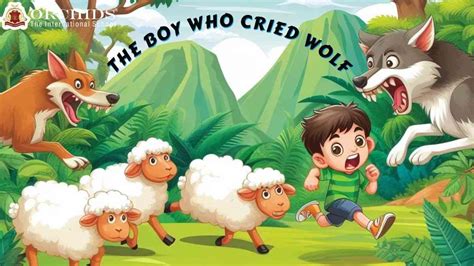The ancient fable of "The Boy Who Cried Wolf" has been a timeless classic, passed down through generations, and its moral lessons remain relevant today. The story revolves around a young shepherd who repeatedly cries out for help, claiming a wolf is attacking his flock, even though there is no wolf. When a wolf finally appears, the boy's cries for help are ignored, and the wolf devours the flock. The climax of the story is a pivotal moment that teaches us valuable lessons about trust, responsibility, and the consequences of our actions.
Lesson 1: The Importance of Trust

The boy's repeated lies and false alarms destroy the trust between him and the nearby villagers. When he finally needs their help, they refuse to believe him, and the consequences are disastrous. This lesson highlights the significance of trust in our relationships, whether personal or professional. Once trust is broken, it can be challenging to repair. The boy's actions demonstrate how easily trust can be lost and how difficult it is to regain.
Consequences of Broken Trust
Broken trust can lead to a range of negative consequences, including:
- Strained relationships
- Decreased credibility
- Loss of opportunities
- Difficulty in rebuilding trust
In the story, the boy's broken trust leads to the loss of his flock, which is a devastating consequence of his actions.
Lesson 2: Responsibility and Accountability

The boy's actions demonstrate a lack of responsibility and accountability. He is entrusted with the care of the flock, but he fails to take his duties seriously. Instead, he uses the wolf as a prank, without considering the potential consequences. This lesson emphasizes the importance of taking responsibility for our actions and being accountable for our mistakes.
Benefits of Taking Responsibility
Taking responsibility for our actions can lead to:
- Increased credibility
- Improved relationships
- Greater trust
- Personal growth and development
In contrast, the boy's lack of responsibility leads to devastating consequences, highlighting the importance of taking our duties seriously.
Lesson 3: Consequences of Our Actions

The climax of the story serves as a stark reminder of the consequences of our actions. The boy's repeated lies and false alarms ultimately lead to the loss of his flock. This lesson highlights the importance of considering the potential consequences of our actions before we act.
Reflecting on Our Actions
Reflecting on our actions can help us:
- Identify potential consequences
- Consider alternative actions
- Learn from our mistakes
- Make better decisions in the future
In the story, the boy's failure to reflect on his actions leads to disastrous consequences. By considering the potential consequences of our actions, we can make more informed decisions and avoid similar pitfalls.
Gallery of Printable Images






FAQs
What is the moral of "The Boy Who Cried Wolf"?
+The moral of the story is that lying and deceiving others can lead to a loss of trust and credibility.
Why is it important to take responsibility for our actions?
+Taking responsibility for our actions demonstrates accountability and helps us learn from our mistakes.
What are the consequences of breaking trust?
+Breaking trust can lead to strained relationships, decreased credibility, and difficulty in rebuilding trust.
In conclusion, the climax of "The Boy Who Cried Wolf" serves as a powerful reminder of the importance of trust, responsibility, and considering the consequences of our actions. By reflecting on these lessons, we can make more informed decisions and avoid similar pitfalls in our personal and professional lives.
